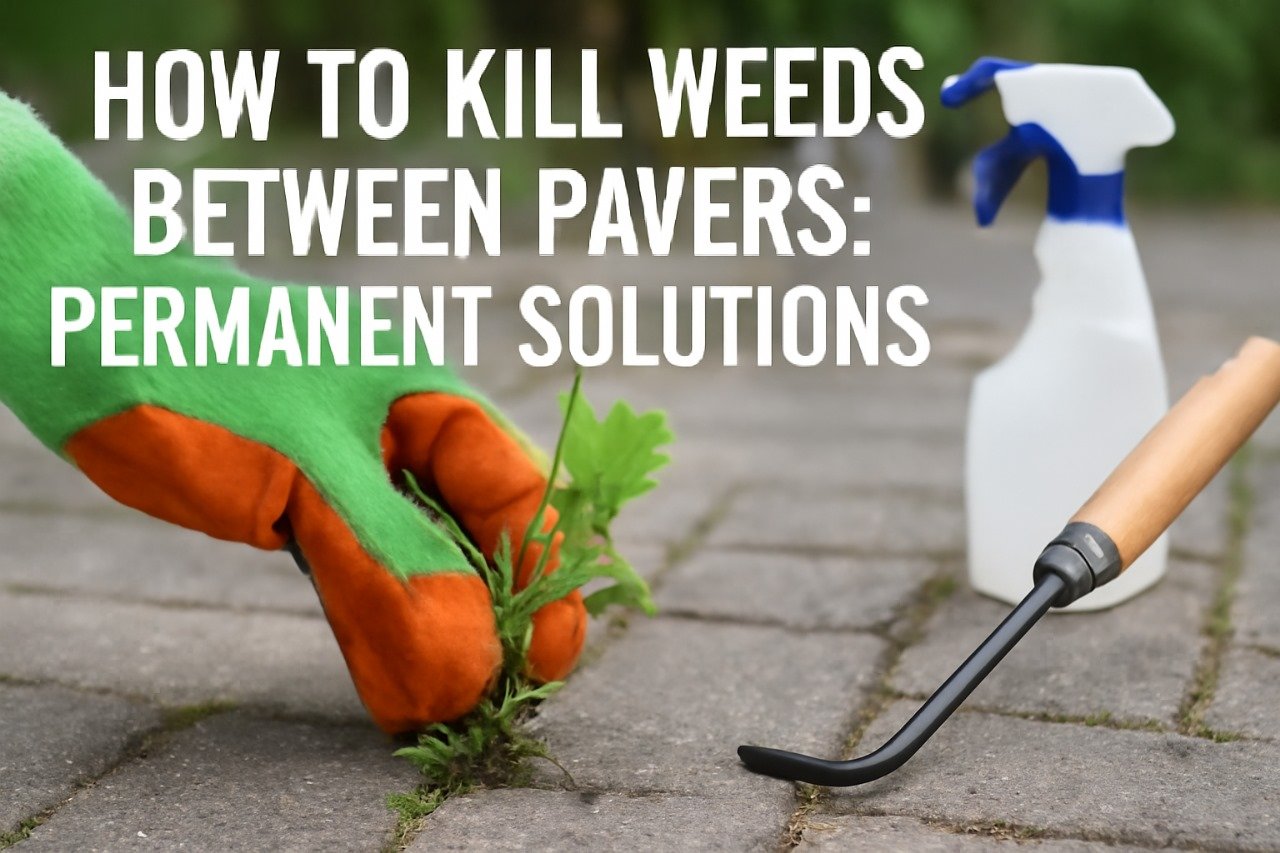
How to Kill Weeds Between Pavers: Step-by-Step Guide
A gap between pavers is subject to frustrating and unsightly weeds. This could be your driveway, walkway, or patio; unwanted plants always tend to grow in cracks. Fortunately, one does not have to buy a new lawn. One can eliminate weeds between the pavers permanently. Starting with chemical solutions such as driveway weed killers and moving on to the more environmentally conscious choices, we should find out what safeguards any homeowner in Canada should adopt to keep their home free of weeds.
Why Do Weeds Grow Between Pavers?
Weeds in between the pavers flourish due to moisture and sunlight, as well as organic materials in the joints. Gradually, the crack between stones becomes filled with dirt, creating an ideal place where seeds can germinate. Even a gravel driveway will become a weedy mess without proper maintenance. Understanding how weeds grow and how they can be prevented from recurring is quite important in getting rid of the ones that are growing between the pavers.
Natural Methods to Get Rid of Weeds
Natural products can be as effective as commercial herbicides for eco-conscious homeowners. A versatile combination of vinegar, salt, and dishwashing detergent is a natural-based weed killer that may be used on pavers. Another popular remedy is baking soda, which can stop the growth of weeds in interlock joints. These only serve to kill a mild infestation, and they do not poison your grass or pets, provided they are not used recklessly.
Chemical Options for Driveway Weed Control
Commercial driveway weed killers take up the slack where natural solutions fail. Herbicides such as glyphosate or plants killed by salt pass deep into the root system, and regrowth is inhibited. A particularly good example is products that are labeled as driveway herbicide or gravel weed control. Read the label instructions to prevent damaging the nearby plant or surface. To have a permanent effect, combine chemical treatment with effective sealing.
How to Permanently Kill Weeds in Driveways and Interlock
Weeds that occur between the pavers should be eliminated permanently through a collective strategy. Weeds should be first removed either manually or by a pavement weed remover. Then spray some permanent weed killer in the cleaned cracks. Complete this by refilling joints with polymeric sand, which sets and disallows further growth. This technique is applicable to both concrete and stone pavers, and it is perfect even when it comes to gravel driveways.
Tools to Help You Remove Weeds Faster
The tools will accelerate the process. Occasionally a weed puller held in your hand will enable you to get rid of the plants cleanly. Dirt and debris may also be washed out of joints using power washers. When the area of concern happens to be a gravel driveway, loosen weeds with a landscape rake and gather that which is undesirable. The process of removing weeds in driveways can be completed in a short span and conveniently in case the right equipment is used.
Preventing Weeds Between Pavers Long-Term
The best way to deal with weeds is to prevent them. Sweep your driveway or patio regularly to remove debris. After killing weeds between pavers, consider sealing the surface or reapplying polymeric sand. For gravel areas, a weed barrier fabric underneath the surface can stop growth altogether. Regular upkeep will ensure a clean, weed-free look year-round.
FAQs About Weeds Between Pavers
Q1: What’s the best permanent solution for weeds between pavers?
Apply a strong herbicide followed by polymeric sand to seal gaps and prevent regrowth.
Q2: Is vinegar effective in killing weeds?
Yes, vinegar mixed with salt and dish soap is a natural solution for small weed patches.
Q3: Can weeds grow back after using herbicide?
If not sealed or maintained, weeds may return. Always combine herbicide with physical barriers.
Q4: Are commercial driveway weed killers safe?
When used correctly, yes. Follow product labels and avoid overspraying near desirable plants.
